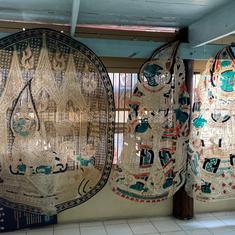Makar Sankranti 2021: Auspicious time, significance and history
This Makar Sankranti, Maha Punya Kala begins at 8.30 AM and ends at 10.15 AM. This is the best time to perform the special puja for the day.

Makar Sankranti is one of the most auspicious days of the Hindu calendar and is dedicated to diety Surya (Sun). The festival falls in mid-January, marking the end of the harsh winter season and the beginning of the harvest season.
Being a festival that celebrates the solar cycle, it almost always falls on the same Gregorian date every year i.e., January 14 or January 15. Makar Sankranti is one of the few Indian festivals that is observed according to solar cycles. Most festivals fall according to the Hindu calendar.
Makar Sankranti Celebrations and Significance:
Makar Sankranti is celebrated across India by different names. It is known as Pongal in Tamil Nadu, Maaghi in Punjab, Bhogali Bihu in Assam and Uttarayan in Gujarat. It is one of the most auspicious days of the Hindu calendar and indicates the first day of the sun’s transition into Capricorn.
In Uttar Pradesh and parts of Bihar, Makar Sankranti is also known as ‘Khichdi’ after the one-pot meal that is offered to the sun god. On Makar Sankranti in North India, khichdi made with rice, urad dal and a colourful medley of winter vegetables is flavoured with warm aromatic spices and pure ghee.
In most parts of India, til or sesame seeds are crucial to Makar Sankranti rituals. Kite-flying is an important part of the day on Makar Sankranti.
Vice President greets the nation on the eve of Makar Sankranti and Pongal.
Vice President @MVenkaiahNaidu greets the nation on the eve of Makar Sankranti and Pongal
— PIB In Meghalaya (@PIBShillong) January 13, 2021
Details: https://t.co/6YJ779utjl@VPSecretariat @PIB_India @MIB_India pic.twitter.com/BiEmjtL6vk
Makar Sankranti Puja:
This Makar Sankranti, the most auspicious time or Maha Punya Kala begins at 8.30 AM and ends at 10.15 AM and this is the best time to perform the special puja for the day. Also, Makar Sankranti Punya Kala or favourable time begins at 8.30 AM and finishes at 5.46 PM, according to a report byTHE TIMES OF INDIA.
On this day, devotees take a holy dip in rivers, especially Ganga, Yamuna, Godavari, Krishna and Kaveri. The bathing is believed to result in merit or absolution of past sins. They also pray to the sun for success and prosperity.
As per legends, it is considered that Sankranti — after whom the festival is named — was a divinity, who executed an evil called Sankarasur. The day next to Makar Sankranti is called Karidin or Kinkrant. On this day, Devi killed the villain Kinkarasur. The facts and glimpses of Makar Sankranti are available in Panchang, as per the TOI report.














